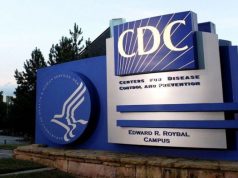CDC yetkilisi, Koronavirüs yayılımının gelecek yıla kadar sürebileceğini, ancak etkinin azalabileceğini söyledi
Hastalık Kontrol ve Önleme Merkezleri’nden Nancy Messonnier, gazetecilere yaptığı bir çağrıda, “Salgının gidişatı devam ederken, ABD’deki birçok kişi bu yıl veya sonraki bir noktada bu virüse maruz kalacak.” Dedi.
Messonnier, the director of CDC’s National Center for Immunization and Respiratory Diseases, used the press briefing Monday to urge Americans who face higher risks of developing more severe disease, including seniors and people with underlying health conditions, to take precautions and prepare. Such steps include avoiding crowds and contact with people who are sick, and frequent hand washing.
She also said that high-risk Americans should stock up on their medications and groceries, and that family members of those high-risk people should create a plan should they get sick and they can no longer help their relatives.
“You may need to identify backups,” Messonnier said.
She added: “I understand these recommendations may not be popular and that they may be difficult for some people.”
Messonnier’s suggestion that the virus could last into next year fits with the predictions of some experts that the virus will circulate for a long time, given how difficult contagious respiratory illnesses are to halt. Some experts have said they see the virus becoming endemic, that is, spreading permanently in the human population like some viruses that cause colds and the flu.
The concern with the novel coronavirus, however, is that no one had any existing immunity to it, so initial exposure is more likely to lead to more severe illnesses for some patients. The most vulnerable include seniors, those whose immune systems are suppressed, and those who are already dealing with other health conditions.
Messonnier noted that most communities in the United States are not experiencing community spread of the virus and said that people need to make decisions based on where they live and their own needs. She also advised that people who are not at high risk for severe illness, particularly those not living in places like communities in Washington state and California where the virus is known to be spreading, to act prudently. Masks, for example, should really be saved for health care workers.




















